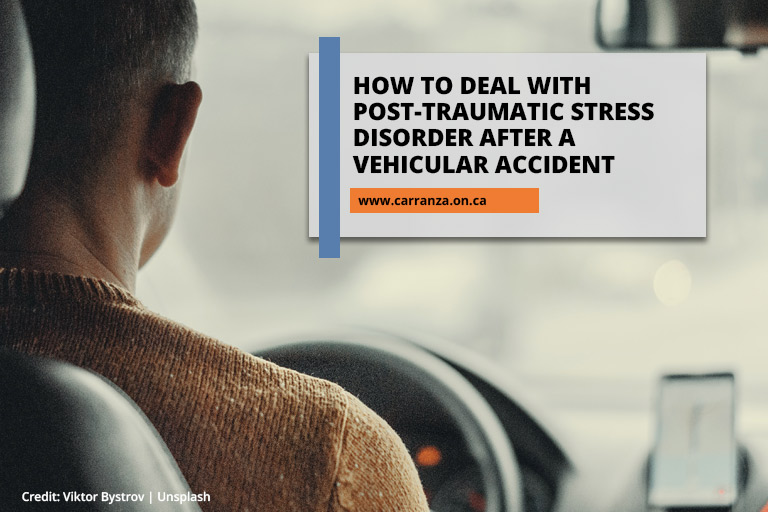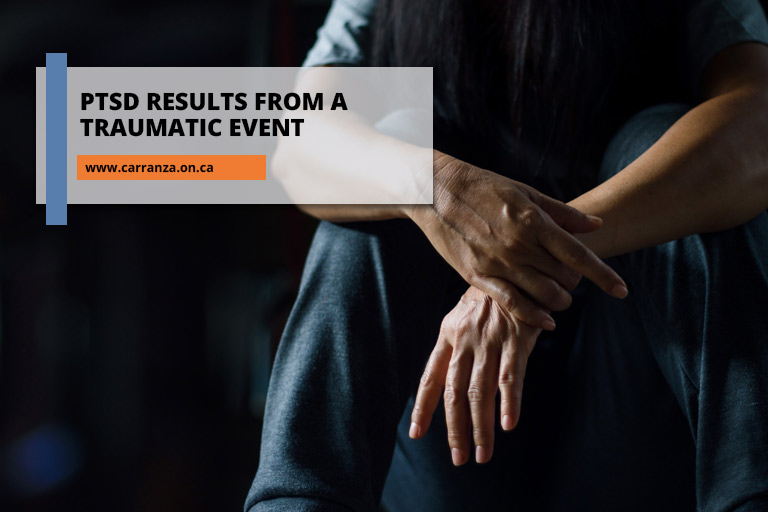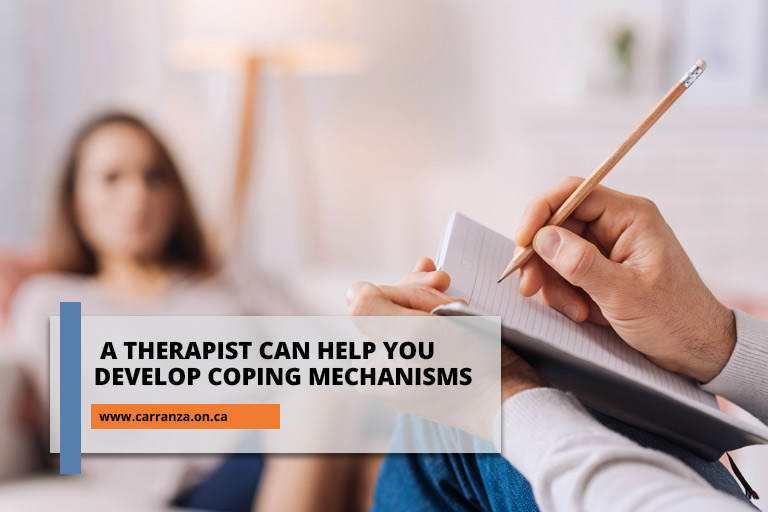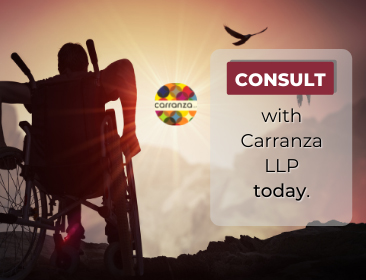
When you are involved in a car accident, you may be dealing with some cuts and bruises, or more serious injuries, like fractures. However, car accident injuries aren’t just physical. It is normal to feel a range of emotions, such as fear, anger, anxiety, and depression. For some people, however, these feelings may persist long after the accident has occurred and may even develop into post-traumatic stress disorder (PTSD). If you are struggling with PTSD after a car accident, there is help available. In this article, we will discuss the symptoms of PTSD and provide tips for coping with this disorder.
What Is PTSD?

PTSD, or post-traumatic stress disorder, is a mental health condition that can occur after a person has experienced or witnessed a traumatic event.
PTSD can lead to social isolation, job loss, relationships problems and even substance abuse. If you or someone you know is experiencing symptoms of PTSD, it is important to seek professional help.
Signs You May Have PTSD After a Car Accident
If you've been in a car accident, it's normal to feel shocked and shaken up. But for some people, the emotional aftermath of the accident can be much more severe. Symptoms of post-traumatic stress disorder (PTSD) after a car accident may include flashbacks, nightmares, anxiety, depression, and trouble sleeping.
You may feel constantly on edge and always on alert for danger. You may avoid driving or riding in cars altogether as a result or you may find yourself reliving the accident over and over again in your mind. If you're struggling to cope after a car accident, don't be afraid to seek help from a mental health professional. With treatment, you can start to heal the emotional wounds of the accident and move forward with a fulfilling life.
Tips for Dealing With PTSD After a Car Accident

Exercise Regularly
Exercise has long been known to have physical benefits, but it can also be helpful in managing mental health conditions such as PTSD. For people with PTSD, anxiety and stress can be constant companions, making it difficult to go about everyday activities. Exercise can help to ease these symptoms by releasing endorphins, which have mood-boosting effects.
In addition, exercise can help to improve sleep quality, which is often diminished in people with PTSD. Getting regular exercise can also promote a sense of accomplishment and provide a sense of structure and routine, both of which can be helpful in managing PTSD. While exercise won't cure PTSD, it can be an important part of an overall treatment plan that can lead to a more positive outlook and improved quality of life.
Consider Therapy
Seeing a therapist is a very effective treatment for post-traumatic stress disorder. A therapist can help you to understand your symptoms and develop coping mechanisms to deal with them. In addition, therapy can provide a safe space to process your trauma and work through your feelings. If you are struggling with PTSD, consider seeing a therapist to help you get back on track.

Create (and Stick to) a Self-Care Routine
Self-care is any activity that we do intentionally in order to take care of our physical, mental, or emotional health. It can be something as simple as taking a few deep breaths, going for a walk, or writing in a journal. For people who live with PTSD, self-care is essential as it can help to reduce symptoms and improve overall well-being.
Self-care can provide a sense of control and empowerment for people who have PTSD. It can help to counter the feeling of helplessness that often accompanies the condition. When we take care of ourselves, we are sending the message that we are worth taking care of. This can be a very powerful healing force.
In addition to its psychological benefits, self-care can also have positive physical effects. Exercise, for example, releases endorphins, which have mood-boosting and pain-relieving properties. Good nutrition is important for overall health and can help to reduce the symptoms of anxiety and depression.
Keep an Open Line of Communication With Loved Ones
After a traumatic event like a car accident, it is common to feel isolated and alone. Many people feel like they cannot talk about what happened, or that no one will understand. However, talking to loved ones can be an important part of the healing process.
By sharing your story, you can begin to make sense of what happened and start to work through your emotions. In addition, your loved ones can provide support and understanding during this difficult time. If you are struggling to cope with the aftermath of a car accident, reach out to your friends and family. Talking about your experience can help you to heal and move forward.
Rebuild Your Confidence by Taking Defensive Driving Lessons

Once you’ve been involved in a car accident, it can be difficult to feel confident behind the wheel again; this is especially true for people with PTSD. For that reason, it can be helpful to take defensive driving lessons after an accident.
These classes can help you refresh your knowledge of the rules of the road and give you practical experience driving again. They can also help you to rebuild your confidence and refresh safe driving techniques. Many insurance companies offer discounts for the completion of defensive driving courses, so taking these lessons can also help you save money on your premiums.
Contact an Experienced Personal Injury Lawyer in Hamilton
If you believe you’re suffering from PTSD as a result of a car accident, you may be able to take legal action in the form of a
car accident injuries claim. Our lawyers at Carranza LLP have the experience and knowledge to assist you through the process of dealing with a car accident settlement. Call us today at 1-877-633-1065 to learn more about our services.